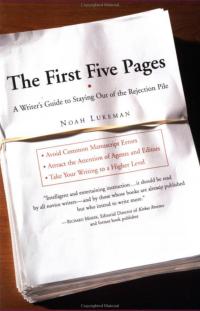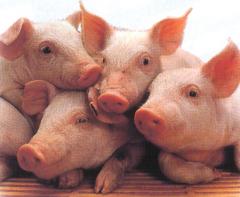Saturday, August 16: Mississippi Mud
THE WRONG STUFF
by John M. Floyd
It’s often been said that if you want to write fiction you’d better also read fiction. And not just a book or two, now and then. You should read a lot of fiction. If you don’t—well, if you don’t, you might want to rethink the whole aspiring-writer thing.
What has not often been said is that you don’t always have to read good fiction. What do I mean by that?
The Power of Negative Thinking
Everyone knows that one way (maybe the best way) to learn how to do something well is to study something that’s already been done well and then do likewise. But sometimes it also helps to study things that haven’t been done well. In the area of fiction writing, it can be a good move to occasionally read a book or a story that stinks to high Heaven. Don’t get me wrong—I’m not suggesting you seek out a boring or poorly written book to take with you on your beach vacation. But if you’re a writer, and you happen to read the first twenty or thirty pages of someone’s novel (or half a dozen pages of a short story) and find that it’s terrible … you haven’t necessarily wasted your time. It’s just as important to know what not to do, in fiction writing, as to know what to do.
 Noah Lukeman made a great point in his book The First Five Pages. He said the readers of manuscripts at the offices of magazines and agents and publishers are taught not to look for good writing, when they go through a stack of submissions. Instead, they’re taught to look for bad writing. They look for ways to reject a manuscript and toss it out, and when they’re done they go back and look at what’s left—which is the good stuff. We writers owe it to ourselves to learn what signals bad writing, and to then look for it when we read.
Noah Lukeman made a great point in his book The First Five Pages. He said the readers of manuscripts at the offices of magazines and agents and publishers are taught not to look for good writing, when they go through a stack of submissions. Instead, they’re taught to look for bad writing. They look for ways to reject a manuscript and toss it out, and when they’re done they go back and look at what’s left—which is the good stuff. We writers owe it to ourselves to learn what signals bad writing, and to then look for it when we read.
What Are Some Things to Watch For?
You already know that: glaring errors in structure, logic, pacing, characterization, style, viewpoint, etc. When editors and agents and publishers run into this kind of thing, they roll their eyes and move on to the next submission. When you as a writer/reader run into this kind of thing, go ye and do otherwise.
I know what you’re probably thinking, here. Errors like those might keep you from getting published, but they won’t show up in work that’s already published, right? Wrong. Some poor writing does indeed get through into print, sometimes because of sloppy editing and sometimes because a writer’s become so “famous” he doesn’t expect and doesn’t receive much editing. So our basic idea—that we should keep an eye out for writing mistakes and learn from them—is still sound. Bad writing is indeed out there, in published books and stories and produced screenplays.
Pigs in a Poke
 There is of course no foolproof way to know, beforehand, whether a piece of fiction will be good or bad. I tend to enjoy movies that feature Robert Duvall and avoid movies that feature Will Ferrell, but even those rules-of-thumb don’t always work. (Example: I hated “Gone in Sixty Seconds” and I loved “Stranger Than Fiction.”)
There is of course no foolproof way to know, beforehand, whether a piece of fiction will be good or bad. I tend to enjoy movies that feature Robert Duvall and avoid movies that feature Will Ferrell, but even those rules-of-thumb don’t always work. (Example: I hated “Gone in Sixty Seconds” and I loved “Stranger Than Fiction.”)
A funny thing: When I was younger, I almost always finished every book or story I started reading, and every movie I went to see. I would by God hang with it to the end, even if it was pitiful — hoping, I suppose, that it would get better. Now that I’m older and (presumably) wiser, I no longer do that. If I get halfway through a story or a novel or a movie and find that it’s making my stomach cramp or my head hurt, I’ll give up on the book or leave the theatre. My reasoning is, there are too many good stories and films out there for me to waste my time on one that isn’t good. And let’s face it, once I’ve identified why it’s bad, there’s no reason to stick with it all the way to the end. Discomfort is one thing, torture is another.
Prospecting for Fool’s Gold
But does watching out for the quality of the writing lessen a reader’s enjoyment of a story? Can you pinpoint both wonderful and horrible passages, and recognize them for what they are, while remaining in the fantasy world that’s required for a good reading experience? (After all, some poorly-written fiction can turn out to be a pretty good story overall.)
Actually, you can, and after awhile it gets easier to do. Keeping part of my mind focused on the writing itself makes reading even more fun, for me. When I find something truly brilliant in a story, it inspires me to try harder to do the same in my own fiction, and when I see something pathetic, it inspires me in two different ways: (1) now that I see what’s wrong I can make sure I don’t make the same mistake, and (2) when I realize an author can write that badly and still get published, and I know I can do better than that, then I feel my future as a writer might be secure after all.
 As I mentioned earlier, selecting books and stories and movies is no sure thing. It’s like picking chocolates from a box — as good old Forrest’s mother told him, nothing’s guaranteed. Just be sure, after you bite into the piece of candy that makes you gag, to remember what shape and color it was so you won’t pick that kind next time.
As I mentioned earlier, selecting books and stories and movies is no sure thing. It’s like picking chocolates from a box — as good old Forrest’s mother told him, nothing’s guaranteed. Just be sure, after you bite into the piece of candy that makes you gag, to remember what shape and color it was so you won’t pick that kind next time.
There is of course a silver lining here: Most published fiction isn’t bad. In fact most is pretty good, and some of it’s excellent.
Good luck with your selections.




















First of all, very interesting column.
Second, I am in the same situation Deborah was in a few weeks ago. This is very close to the subject of my column for next week. I thought about substituting another but decided, what the hell. I think it is interesting to see two (or more) of us kicking the same idea around.
Cheers.
Thanks, Rob. And I agree with you — we shouldn’t worry too much about covering similar topics. Everybody has his or her own unique take on this stuff anyhow.
As for the subject of bad writing, I should add that I just finished reading a book that’s really popular right now (I hesitate to reveal the title or author), and even though it’s so badly written it could be a textbook for style errors, it’s a surprisingly good story. Sometimes things just work, and sometimes they don’t.
It is useful to separate good writing from good storytelling. There are a ton of people who write better than JK Rowling, for instance, but as a storyteller she is brilliant.